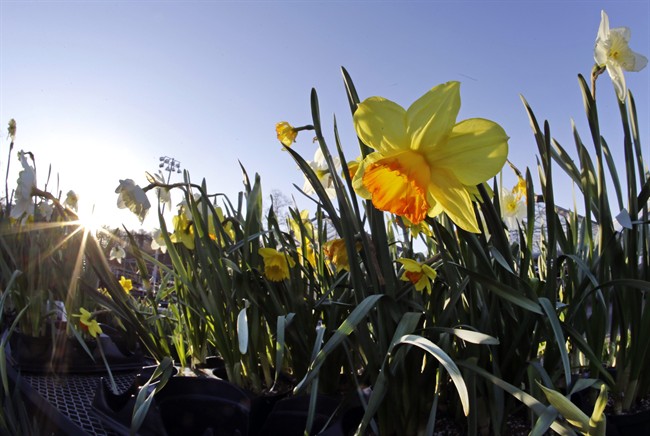People living with cancer can have the most supportive friends, family and doctors in the world, but there is nothing better than speaking with someone who has shared the same experience, someone like David Kirkham.

Kirkham is a volunteer with the Canadian Cancer Society’s CancerConnection program which matches cancer survivors with people who have been newly diagnosed with the same type of cancer. While they don’t provide any medical advice, these volunteers offer a listening ear to people experiencing cancer and help prepare them for what to expect as they cope with their disease.
“What we do is share our own experience and then turn the conversation back to the client and ask what’s going on in their life,” said Kirkham, a 65-year-old retiree living on Vancouver Island whose smooth voice on the telephone is a holdover from his former career as a radio journalist.
Kirkham’s own struggles with cancer date back to 1993 when he was diagnosed with Hodgkin’s lymphoma. He was treated with surgery and radiation therapy and he thought he had it beat until it resurfaced about 12 years later. He underwent chemotherapy and was fine until he found out five years ago that he had bladder cancer. That required radiation therapy, chemotherapy and major surgery to treat.
It was during his bladder cancer experience that he discovered CancerConnection, the free telephone support service that is provided in both official languages across Canada as well as other languages spoken by the program volunteers.
“It was kind of life changing and there’s emotional components as well and I kind of thought there’s got to be other people who have gone through this so I just went on the Canadian Cancer Society website and discovered that there is this program called CancerConnection,” said Kirkham.
He was mentored by a volunteer from Ontario who had also had bladder cancer. “I found it very useful and thought I could be helping other people so I contacted the Canadian Cancer Society and said I’d be more than happy to support other people who’ve been going through this.”
After meeting the program requirement of being at least one year past cancer treatment, Kirkham underwent the necessary training to become a peer mentor and has been doing it for nearly three years.
“It takes a special kind of person,” said Leanne Morgan, a Vancouver-based Director of Support Services with the Canadian Cancer Society. “A lot of us do like to give advice from time to time, but being able to find that right person to provide non-judgemental support without giving advice makes it less easy. We do have a rigorous screening and training process so we’re always looking for more volunteers.”
Morgan finds the program to not only be incredible, but also very necessary.
“One of the things that’s missing for a lot of people with cancer is informational and emotional support,” she said. “It can be a scary experience so talking with someone who has been there can be really encouraging for people.”
“And also being able to just speak freely about what they’re feeling can be very helpful. Some people find it hard to be open with their friends and family. They don’t want to worry them about the impact of their diagnosis,. They want to protect them from this. CancerConnection can create a safe place for people to be able to express themselves.”
“More people are living with cancer than dying from it so that means there’s more people that could use the support if they knew where to find it,” added Kirkham.
Kirkham says he’s had nothing but positive experiences with the people he speaks with and has had a lot of encouraging feedback from clients who have benefitted from his support.
“The discussion could be one call. It could be several calls over several weeks or several months and then at some point you’ve got to end it. It doesn’t go on and on. I’ve done this several times now and I just find it incredibly rewarding. It’s a rewarding way in which to give back, in which to help other people. ”
“It’s really just to support the other individual through that conversation,” he said.
People with cancer can also go online to cancerconnection.ca to share stories and experiences and learn from webinars on topics of interest to them.
Morgan at the Canadian Cancer Society says they also have a pilot program for a new support service called New Normal which helps people who have finished their treatment and are trying to cope with the new realities they face post-cancer, like returning to work and maintaining relationships. The pilot program is focusing on people with breast and colorectal cancer.
Kirkham wishes more people understood that their donations to the Canadian Cancer Society not only provide funding for medical research, but also for support programs that help ordinary people on a daily basis. “I want to make people aware that CancerConnection and Peer Support exist and they are just a phone call away and the Canadian Cancer Society is really providing a very valuable service to people with cancer.”

